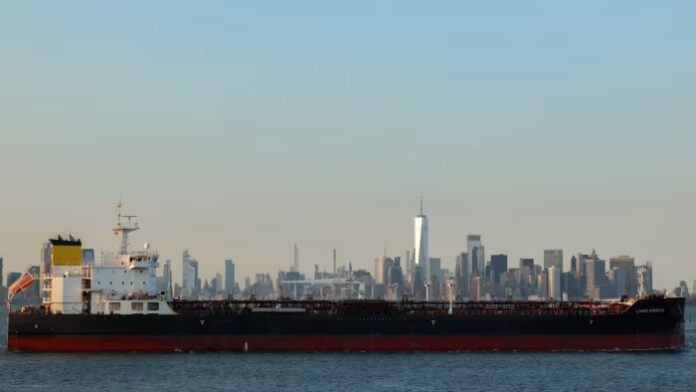Unlock the White House Watch newsletter for free
Your guide to what Trump’s second term means for Washington, business and the world
This time it’s different. Since Donald Trump came to office in January, he has fought a remorseless battle against any move to cut greenhouse gas emissions. Some of his efforts have hit home in the US, where large solar projects have been pointlessly cancelled and important weather and data services gutted. Cuts to US foreign aid have hurt climate programmes in developing countries.
But last week’s regrettable derailment of a landmark global deal to cut shipping emissions is one of Trump’s most successful attempts yet to force all countries, rich and poor, to back his push to prolong the era of fossil fuels.
The decision to defer adoption of the deal for a year is likely to have immediate effects on an industry that has long escaped internationally co-ordinated climate measures even though it accounts for around 3 per cent of global emissions, roughly the same as Japan. That share is forecast to rise sharply without action.
Until last week, action looked imminent. After years of painstaking negotiation at the UN’s International Maritime Organization, countries in April provisionally endorsed what was supposed to have been the first binding global carbon pricing mechanism adopted under international law.
What Trump called a “global green new scam tax on shipping” is nothing of the sort. It is a long overdue attempt to bring international shipping into line with other sectors by requiring ships to comply with emissions intensity limits in a carbon credit system expected to raise at least $11bn a year. The money is due to go to a Net Zero Fund to ease the impact of the system on very poor countries, reward greener ships and speed up the adoption of low-carbon fuels.
Yet in a now familiar pattern for the Trump administration, the US got its way after threatening countries voting in favour of the deal with visa curbs, higher port fees and other penalties.
Officially, adoption of the deal has only been postponed by a year. The political reality is that it is hard to see it passing before January 2029, when Trump’s term is due to end. The result meanwhile is highly likely to be a shift back to conventionally fuelled engines in new vessel orders, which the net zero shipping deal was supposed to deter.
Orders for ships powered by greener alternatives such as liquefied natural gas, methanol and ammonia have been growing but many owners have been hedging their bets on which fuels will end up predominating. Analysts at Jefferies say just over 40 per cent of vessels now on order are dual-fuel capable, meaning a greener fuel system would be in place on delivery, a step which adds $10mn-$15mn to construction costs.
A smaller 16 per cent of ships on order are dual-fuel ready, at a cost of only around $500,000, meaning they can have a new system installed after delivery. Last week’s deferral of the net zero plan removes a key driver that would have incentivised shipowners to order more dual-fuel capable than ready vessels. In addition, the net zero framework would have opened the way to address the emissions not just of the larger “liner” companies operating container ships on regular itineraries — which account for around 15 per cent of the global cargo fleet by capacity — but the many smaller companies in the “tramp” or on-demand sector, such as oil tankers and bulk carriers.
All is not entirely lost. The EU has rules to encourage greener shipping. Ports globally are investing in cleaner fuels to boost so-called green shipping corridors, routes that ships can travel using only low emission fuels. Big shipping companies are also still investing in greener vessels. But these moves are overdue and slow. The US president has now ensured that any global fix for maritime carbon emissions will be even slower still.
Source link





